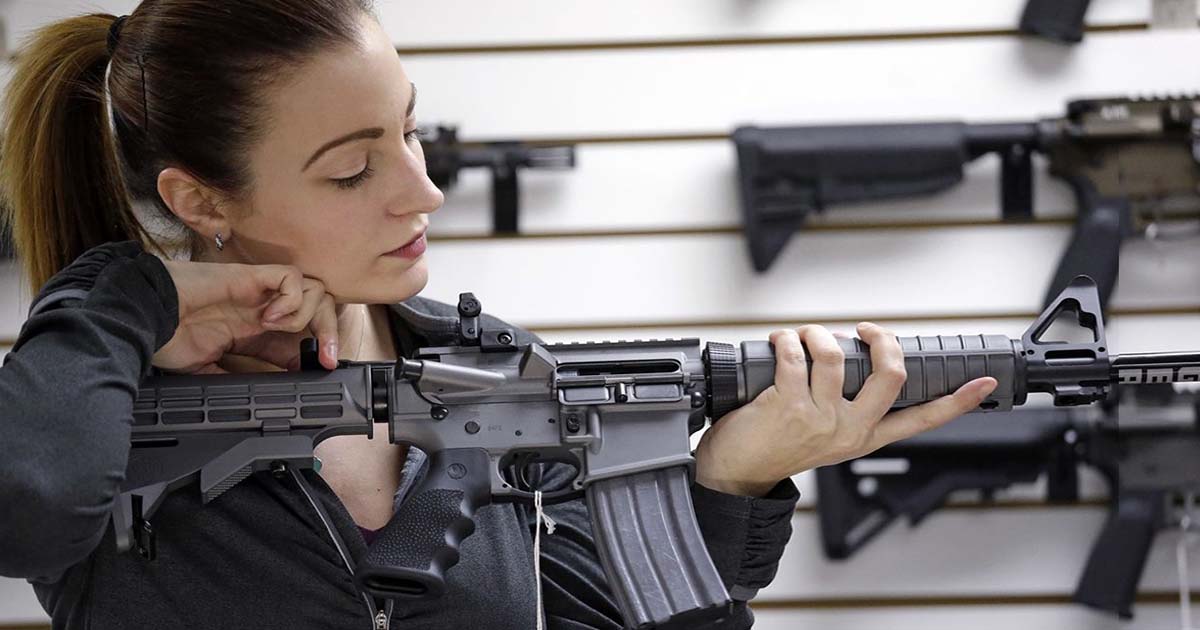When Sheriff Scott Jenkins swore to protect the US Constitution, he swore to protect the Second Amendment — even from new laws in Virginia that he says threaten to deprive citizens of their right to bear arms.
The Second Amendment of US constitution says, ” A well regulated Militia, being necessary to the security of a free State, the right of the people to keep and bear Arms, shall not be infringed.” However, a rise in public shootings and attacks at public schools have jolted constitutional scholars to look into the amendment from a different lens.
Subsequently, scholars have pointed to the prefatory language “a well regulated Militia” to argue that the Framers of the constitution intended only to restrict Congress from legislating away a state’s right to self-defense. Scholars have come to call this theory “the collective rights theory.”
A collective rights theory of the Second Amendment asserts that citizens do not have an individual right to possess guns and that local, state, and federal legislative bodies therefore possess the authority to regulate firearms without implicating a constitutional right.
Sheriff Jenkins, on the other hand, has a polar opposite position. Since December, he has become a key figure in a pro-Second Amendment protest movement that has organized a protest in Richmond, the state capital, on Monday. At least 10,000 supporters plan on attending, according to media reports.
“The Constitution is very clear: the Second Amendment grants every citizen to bear arms, specifically against a tyrannical government,” said the officer from Culpeper County, a rural region about 60 miles (100 kilometers) southwest of Washington.
It is the right of the citizens to be safe. It is the right of the children not to be afraid to go to school
Virginia, which has traditionally leaned conservative, flipped in November and passed into Democratic hands. State Democrats promised to tackle what they considered the laxity surrounding carrying laws, particularly after a May 2019 shooting in Virginia Beach that left 12 dead.
Struck a nerve
The Second Amendment, which states that “the right of the people to keep and bear Arms, shall not be infringed,” has proved controversial over the years and has been subject to many different interpretations. The Supreme Court has ruled that individuals have the right to keep firearms in their households, but left it to states to determine how the weapons could be transported.
New laws under consideration in Virginia would prohibit magazines with more than 10 rounds, the purchase of more than one weapon per month, and permit judges to seize weapons from individuals deemed dangerous.
Read more: Why are US courts hearing cases on further ease of Gun Control?
A draft ban on the sale of semi-automatic rifles, however, has been abandoned.
“We have good enough laws already on the book that do a fine job of restricting dangerous weapons, and there is no need for further restrictions,” said Jenkins.
The imposing sheriff, who believes in the right to self-defense, said that limiting residents’ right to own firearms would allow potential criminals to do even more harm.
Throughout the state of Virginia, more than 100 counties and localities — including Culpeper — have proclaimed themselves as sanctuaries, threatening not to apply the new laws.
Jenkins, who prefers the term “constitutional county,” promised that if the bills were adopted, he would deputize anyone who wanted to do so, and who fit the conditions, allowing them to legally keep their weapons. He said he already has several thousand candidates from all over the state.
“I’m not saying that I will not enforce duly enacted laws, but I’m not saying that I will,” he said.
“Much more Libertarian than Republican,” Jenkins supports a minimal government role in order to prevent too much “interference” in Americans’ daily lives.
For him, the controversy over gun ownership illustrates the divide between urban and rural environments.
Read more: New Zealand gun owners support gun control after massacre
“Most urban areas are leaning left and (have) liberal ideology,” he explained. “Here, people grew up with guns. Hunting, sporting are just part of our culture.”
While many of his fellow Second Amendment defenders have never voted and “probably are not even registered,” Jenkins said, Democratic governor Ralph Northam “has struck a nerve that is so sensitive, so deep and meaningful to the majority of Virginians, it has awakened people.”
Outside the law
In Warrenton, about 20 miles from Culpeper, the owners of the family-run gun store Clark Brothers applaud Jenkins’s decision.
“He has been sworn in to uphold the Constitution, and that’s what he is doing. I absolutely would be his deputy if he asked me,” said Allison Clark, the proprietor’s wife. She stands behind a counter case, in which pistols, revolvers and rifles of all calibers are on display.
But in Culpeper, not everyone is on Jenkins’s side. “Common sense, gun safety is not against the Second Amendment,” said Phoebe Muenger, a retiree.
“It is the right of the citizens to be safe. It is the right of the children not to be afraid to go to school,” she said, referring to the school shootings that seem to happen semi-regularly in the US.
Read more: Could a national buyback program reduce gun violence in America?
For Richard Schragger, a law professor at the University of Virginia, one must look at the history of the state — the cradle of slavery in the US, capital of the Confederacy during the Civil War and a bastion of violent opposition to desegregation during the 1960s — to explain residents’ propensity to proclaim themselves outside the law.
“Certain communities or people are going to refuse to abide by duly enacted laws, after a fair election,” he said. While such groups are a minority, “what they’re really talking about is picking and choosing which law they abide by.”
AFP with additional input from GVS News Desk (Rai Mustafa Bhatti)














